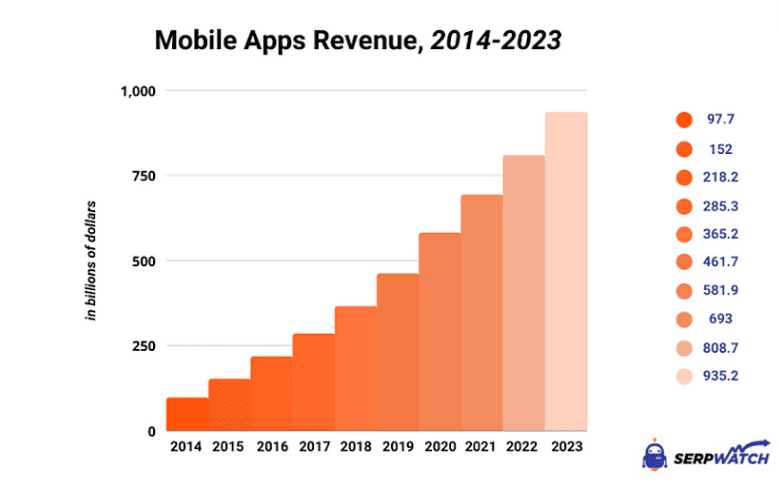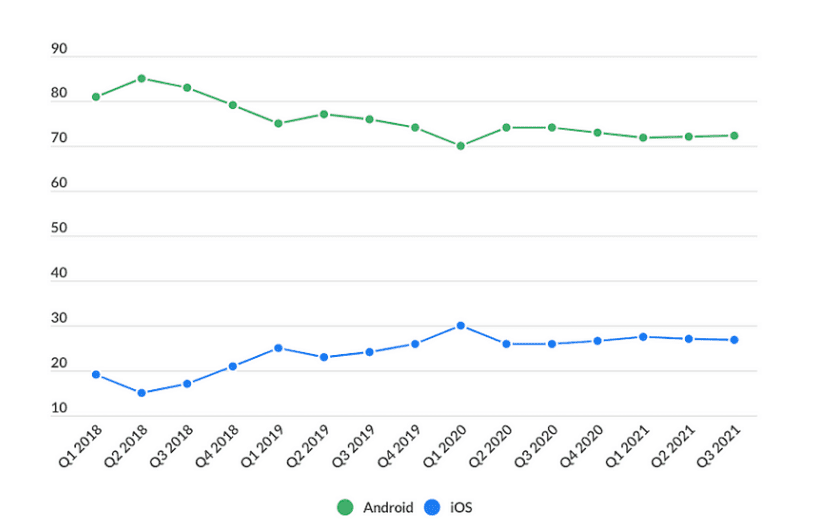
[ad_1]
The article offers an in-depth analysis of the most common problems and mistakes faced by mobile app developers. The author discusses how to avoid these mistakes and warn themselves against wasting time, effort and resources in the development process. The study emphasizes the importance of thorough testing, engaging with user audiences, and the right marketing and strategic approach to successfully build and launch mobile apps.
An overview of common mistakes in mobile app development
With the rise of smartphones and tablets, mobile apps have become incredibly popular. This growth has led to their development and sale becoming an extremely lucrative business. However, any mistake in this area can cause serious financial losses.


Creating mobile applications is a complex and dynamic process that requires not only technical knowledge but also a well-thought-out marketing strategy at all stages of development and promotion. Along this path, there are many potential pitfalls. Let’s focus on the most common ones:
Ignoring audience analysis: Insufficient understanding of the target audience and its needs leads to the new application struggling to find users. This is why analyzing requirements and expectations is a crucial step.
Unsuccessful interface design: Poor design can deter users. Issues with navigation, color palette, and element layout significantly worsen the user experience.
Insufficient testing: Neglecting testing results in the discovery of errors and shortcomings after the application has been released. To avoid this, testing should be conducted on various devices and operating systems.
Unsuccessful choice of platform and technology: The decision to develop for iOS, Android, or both platforms should be well-founded. Choosing the right development tool, whether native or cross-platform, is also important.
Weak project and team management: Irrational planning and time management, as well as team collaboration problems, slow down the development process and negatively impact the application’s quality.
Ignoring security and privacy: Weak data protection increases the risk of information leaks, leading to legal problems. Adhering to security standards and data protection legislation is crucial.
Feature overload: Attempting to include too many functions in the application can make it confusing and slow. Simplicity and intuitiveness are important for the user experience.
Underestimating marketing and promotion: A successful application launch requires thoughtful marketing efforts. Neglecting a promotion strategy results in low visibility in searches.
Insufficient feedback management: Not interacting with users and neglecting their feedback is a direct path to losing trust. Promptly responding to user comments and suggestions is a crucial part of application support.
Discontinuing support after release: Underestimating the importance of updates and ongoing support leads to a loss of audience interest. Regular updates and adding new content are essential to maintaining interest in the solution.
Tips for mobile app developers:
To minimize the risk of shortcomings in creating and promoting new applications, developers should adhere to simple recommendations:
Choosing the platform and technology: The first significant step in creating a mobile application is choosing the platform and technology. Comparing Android and iOS users, it becomes clear that Android users, occupying 72.2% of the market, are market leaders.


The decision to develop for iOS and/or Android has a significant impact on performance. Native applications typically have better optimization as they are specifically designed for a particular platform. However, cross-platform solutions, despite some limitations, are more convenient from a development perspective, especially with limited time and budget resources. Ultimately, budget and time play a decisive role. Developing for both platforms requires more resources than developing for just one. Understanding all these factors and their interconnections becomes the key to making an informed decision that will meet user needs and stay within the project budget.
Understanding the audience and user requirements
When considering what a mobile application should be, we inevitably come to discussing its audience. To create an app that is genuinely useful, we need to understand what users expect from us. App developers need to embody their users. What devices do they use? What app features would be genuinely convenient and useful for them? What makes them come back repeatedly? What aspects of the app capture their attention? These questions may seem simple, but they define the direction in which development should move.
Security and privacy issues
User data protection in modern mobile applications has become an integral part of development and is one of the key tasks for any application. The approach to handling information must be not only technically sound but also ethically justified, considering user confidentiality and privacy. Primarily, ensuring the security of transactions and personal data is essential. For example, a mobile banking app is expected to securely protect financial information from unauthorized access. Another example is medical apps that collect sensitive patient data, such as medical history and test results. Leakage of this information would have catastrophic consequences. Therefore, medical apps must strictly adhere to laws and regulations on medical data processing and use cryptographic methods to protect this information. The application should use modern encryption methods and secure data transmission protocols to protect banking operations and users’ personal information.
Thus, user data protection is more than a technical requirement; it is a matter of trust and responsibility. Applications that successfully ensure data confidentiality strengthen their reputation and establish close ties with users, becoming a key factor for their long-term success in the market.
Testing and debugging
According to Forrester, only 29% of mobile developers actually conduct exploratory testing. However, this is not just a formal stage of development but a crucial component determining the product’s success in the end. The process includes checking the basic functions of the application and identifying possible problems that may arise in real operating conditions. Let’s imagine developing an app for an online store. Users should be able to safely make purchases, add items to the cart, browse the catalog, and make payments. Insufficient testing can lead to a situation where the app incorrectly processes certain types of credit cards, causing payment failures. A user facing such a problem is likely to leave the app and not return, negatively impacting the brand’s reputation. Thorough and comprehensive testing allows identifying and addressing potential issues, ensuring a high-level user experience and strengthening the app’s market position.
Marketing and post-release support
When it comes to the success of a mobile application, it is important to understand that a well-thought-out strategy and marketing efforts play a key role in its launch and popularization. Even during development, it is crucial to consider creating teasers and announcements on social platforms where the target audience is active. The strategy may also include online events, contests, and giveaways to attract user attention. Additionally, launching an interesting and memorable landing page for the app, demonstrating its advantages and features, helps convince users to download it.
Errors in mobile app development not only damage the product’s software image but can also have serious social and business consequences. If an app does not meet user expectations, they quickly lose interest and switch to alternative options. Modern gadget owners are extremely demanding: they need not just a convenient and functional app but also creativity, ease of use, and, importantly, security. Thus, creating a mobile app is not just a technical process but also the ability to understand human needs and expectations. Developers must learn from mistakes, be ready for feedback, and constantly improve their skills to create solutions that are not only functional but also harmonious for every user.
Sources


[ad_2]
Source link